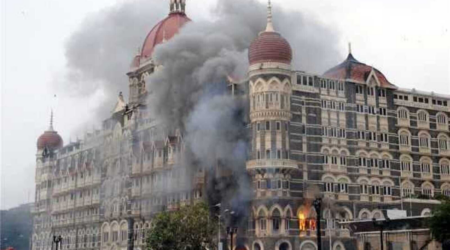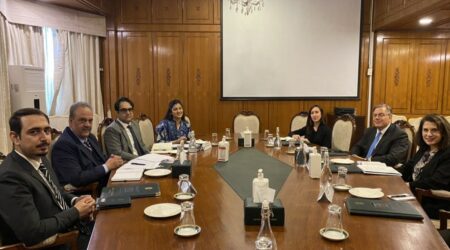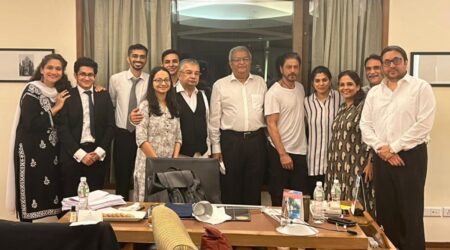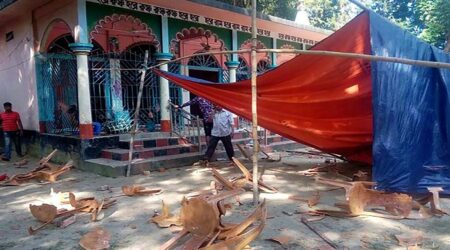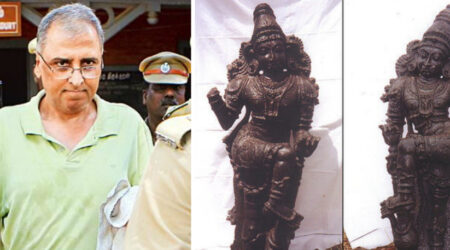By KS Tomar
The foundation of one-person rule in China was laid in 2018 when a scripted gathering elected Xi Jinping as general secretary and now his ascendency to totalitarian position is embedded in the art of camouflaging the world about zero opposition in national People’s Congress having a blind support of 2,952 members, who acts like a “Rubber Stamp.”
Xi became the most powerful leader since Mao Zedong when he took the oath as President. Beside ensuring the election of his cronies including Han Zheng as vice president and Zhao Leji new head of National People’s Congress, the trio is now a deadly combination to rule 1.4 billion Chinese in the communist country.
Xi’s election as President may not change geo-political dynamics relating to border tension with India especially 4000 Km-long disputed territory which may be reinforced with aggression and willingness to use military force as an instrument of authoritarian power. Thereby, making it applicable to South China Sea, Taiwan, etc. also. Xi’s ‘expansion policy’ coupled with ‘debt trap strategy’ may endanger the existence of the borrowing nations like Pakistan which may be encouraged to settle scores with immediate neighbors.
Experts say that India can counter Xi’s assertiveness through its fast-growing economy and strategic patience which will be effective in the backdrop of Dragon’s slowing economy and huge negative fallout of Zero Covid-19 policy and highly strained ties with the United states.
Foreign policy experts say opine that Xi’s open support to Putin on Ukraine war, reviving China’s economy which has touched worst level in 40 years, bad impact of crackdown on property developers, technical giants and escalating tensions with America and allies over sanctions imposed on Russia and improving the world image about violation of human rights with impunity which was reflected in a report of UN high commissioner for Human rights about atrocities on Uyghur and other predominantly Muslim communities in Xinjiang Uyghur Autonomous Region (XUAR).
Xi has exhibited his resolve to revive China’s economy at all costs which has rallied the people behind him. President also showed his commitment to take on western powers which are jealous of the country’s rise and making relentless efforts to contain China. President has given a clarion call to his countrymen to reduce their dependence on western nations for technology and fortify themselves against the risks of food and energy.
Analysts say Xi’s over concentration of power coupled with expansion policy could be worrying symptoms for the entire world hence India and the United States will be required to jointly evolve the strategy to checkmate Xi’s ambition which will lead to peace in the world.
The new team of Xi comprises tested loyalists who will run China for next five years.
Here’s a look at the lineup:
The executive vice premier is the highest ranked of China’s vice premiers, the officials directly under Xi and his No. 2. This post will now be held by Ding Xinxiang, who for the past few years has served as a secretary and chief of staff to Xi.
In this role, Ding is also likely to be responsible for domestic economic policy. The outgoing executive vice premier, Han Zheng, was a former Communist Party secretary of Shanghai credited with guiding that city’s transformation into a cosmopolitan financial capital. Ding, by contrast, has never led a province, working largely as a behind-the-scenes technocrat. But like others recently promoted, Ding has longstanding ties with Xi. He is widely believed to be the office director for China’s National Security Commission, a secretive body that has grown more influential as Xi has emphasized the need for vigilance against foreign and domestic threats. He has also frequently traveled with Xi, both domestically and overseas. Han, the current executive vice premier, was named China’s vice president, a largely ceremonial role.
Head of legislature Zhao Leji is now No.3 in the party hierarchy last fall, was approved last Friday as the head of the National People’s Congress. The legislature nominally has the power to make laws and amend the Constitution, though decisions are in reality made by top party officials. Zhao has kept a relatively low profile, but his responsibilities in recent years have been weighty: He has led the party’s discipline inspection commission, in charge of implementing Xi’s campaign against official corruption and disloyalty. That campaign has been key to Xi’s consolidation of power and purging of rivals. Before taking on the disciplinary role in 2017, Zhao was a top official in charge of party personnel issues, giving him deep experience in the party’s internal affairs.
The Chinese People’s Political Consultative Conference will now be led by Wang Huning, the No. 4 Communist Party official. IN this role, Wang will oversee about 2,000 representatives who ostensibly offer political and social policy suggestions; in reality, the conference works more as a soft power force for the party, mobilizing resources and non party members across Chinese society to back the party’s agenda.
Wang is known as the party’s chief ideologist: He has served three consecutive top leaders in creating propaganda and writing speeches and policies. He helped shape Xi’s motto of the “Chinese Dream” — a vision of national rejuvenation, shepherded by Xi — and his political rise signals the continuation of the party’s hard-line, anti-Western policies.
Working closely with Li, the new premier, on reviving China’s economy will be relevant and important. Life Feng, another trusted former aide to Xi. He, who was approved to become a vice premier overseeing economic and industrial policy, is the current head of China’s National Development and Reform Commission, the country’s economic policy planning committee. In that role, he has overseen the drafting of China’s five-year plans and large investment projects both at home and overseas.
Compared with the outgoing economic czar, Liu He — a Harvard-educated economist who also led trade negotiations with Washington —He has had little overseas exposure. He worked for 25 years in southern Fujian Province, including on and off with Xi when he was rising through the ranks there, and then became deputy Communist Party secretary in the megacity of Tianjin. His close ties to Xi suggest that he will be crucial to carrying out the leader’s vision of a security-oriented, state-led society, where economic growth comes second to ideology.
Analysts opine that America and India may face a more powerful and aggressive Xi who has got expansionist policy in the south Asian region and annexation of Taiwan in mind which is bad news for both nations.

KS Tomar is a senior political analyst based in Shimla, India.
Disclaimer: The views expressed are not necessarily those of The South Asian Times



